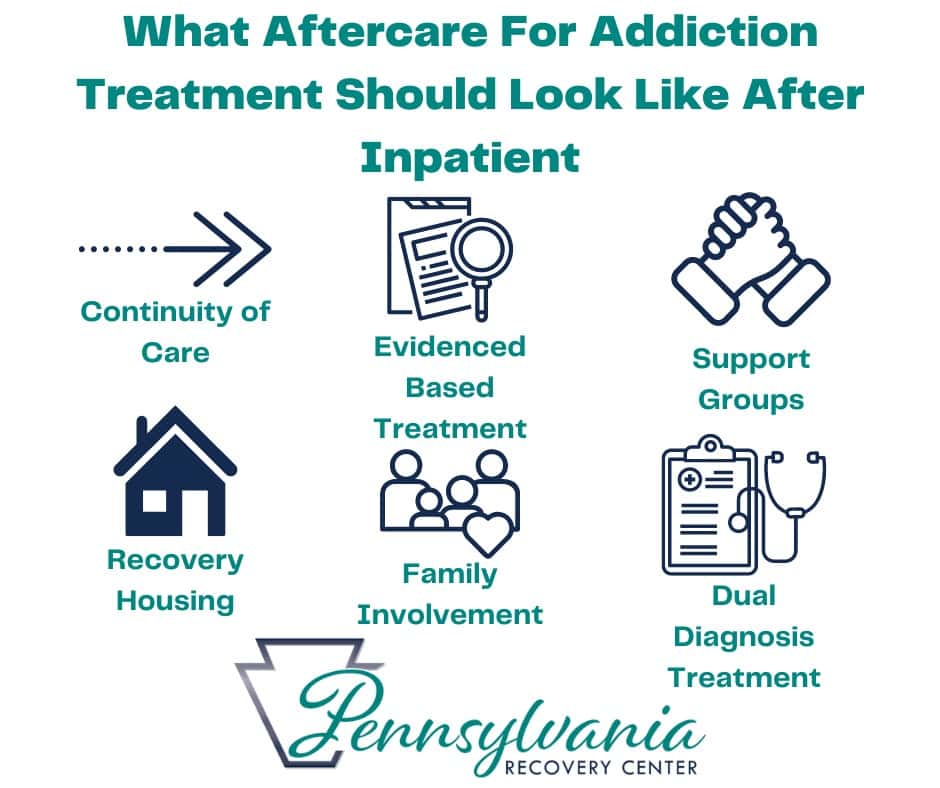How rehab near Chester NJ enhances addiction treatment for long-term success
Wiki Article
Comprehensive Guide to Substance Abuse Therapy: Recognizing, Approaches, and Enduring Recuperation
Substance Abuse refers to the damaging or unsafe use of psychoactive compounds, consisting of alcohol and immoral drugs. It is not merely an issue of willpower or poor decision-making-- it's an intricate problem affected by organic, emotional, and social variables. Individuals dealing with chemical abuse frequently experience compulsive drug-seeking habits despite negative effects in their personal, expert, and social lives. Gradually, these substances can alter brain function, impair judgment, and develop physical and emotional dependence. Recognizing the nature important Abuse is the initial step toward resolving it properly.The reasons for chemical abuse are multifaceted. Genes, mental health disorders, ecological stress, injury, and direct exposure to substances at an early age can all add to the advancement of dependency. It is usually interlinked with problems such as anxiety, stress and anxiety, or trauma (PTSD) For several people, alcohol and drugs come to be coping systems-- tools to leave psychological pain or anxiety. However, this temporary relief promptly paves the way to lasting repercussions, as tolerance constructs and the person needs even more of the Substance to achieve the exact same effect.
Identifying the signs important Abuse early on can stop the problem from escalating. Usual indication consist of changes in habits, forget of responsibilities, withdrawal from liked ones, financial difficulties, and physical signs and symptoms such as fat burning, tiredness, or inadequate hygiene. When left neglected, drug abuse can lead to severe health and wellness problems, damaged connections, and also sudden death. As a result, very early intervention and accessibility to therapy are essential for people struggling with addiction.
The Importance of Looking For Chemical Abuse Therapy
Looking for professional treatment for drug abuse is among one of the most essential decisions a person can produce their wellness and future - dual diagnosis rehab NJ. Addiction is not something that can be gotten over by determination alone-- it needs structured treatment, advice, and regular assistance. Therapy programs are designed to resolve both the physical dependancy and the underlying emotional or psychological problems that drive addicting habits. Without therapy, the cycle of relapse and self-destruction commonly continues, placing the individual's life and well-being at riskThe value of specialist treatment hinges on its ability to provide a regulated and secure atmosphere for recuperation. Throughout cleansing, doctor aid patients handle withdrawal signs and symptoms that can be agonizing and possibly serious. After therapy, therapy and detoxification sessions permit people to face the origin of their dependency, develop dealing abilities, and reconstruct their feeling of self-respect. Therapy additionally assists re-establish healthy and balanced routines, framework, and accountability-- every one of which are vital for long-term healing.
Past the physical and psychological facets, drug abuse treatment plays a significant duty in recovering connections and social functioning. Dependency commonly causes damaged count on, isolation, and strained family members dynamics. Via household therapy and team sessions, people can rebuild interaction and reconnect with liked ones. By including household members in the recuperation process, treatment programs enhance the assistance network necessary for preserving sobriety. Fundamentally, seeking treatment is not almost stopping drugs or alcohol-- it has to do with reclaiming one's life and developing a structure for a healthier, a lot more fulfilling future.
Kinds Of Chemical Abuse Therapy Programs
There is no one-size-fits-all strategy to treating dependency. Each individual's trip is unique, therefore are their therapy needs. Substance Abuse treatment programs can be classified into a number of types, varying from inpatient recovery to outpatient therapy and holistic treatment. The option of therapy depends on variables such as the intensity of dependency, the existence of co-occurring psychological health and wellness problems, and the individual's lifestyle and assistance system.Inpatient or Residential Treatment provides an extremely structured atmosphere where clients stay in a treatment center for a details period, usually between 30 and 90 days. This sort of program uses day-and-night medical guidance and intensive treatment sessions. It's ideal for individuals with severe addictions or those who have actually slipped back multiple times. Inpatient care removes the individual from day-to-day triggers and lures, permitting them to focus solely on healing. Therapies might include cognitive-behavioral therapy (CBT), dialectical actions treatment (DBT), and team counseling, all focused on aiding individuals comprehend and handle their addiction.
Outpatient Therapy Programs offer even more flexibility, enabling individuals to continue with their daily duties while participating in set up therapy sessions. This approach is commonly ideal for individuals with mild to moderate dependencies or as a step-down stage after finishing inpatient rehabilitation. Outpatient programs stress responsibility and long-term relapse prevention approaches. They might consist of specific counseling, medication-assisted treatment (FLOOR COVERING), and assistance teams such as Narcotics Anonymous (NA) or Alcoholics Anonymous (AA)
Along with these, alternative and different therapies are ending up find out this here being increasingly popular. These programs address the body, mind, and spirit connection by integrating techniques such as yoga, meditation, art therapy, and nutritional therapy. Numerous centers additionally use dual-diagnosis therapy for those managing both dependency and psychological health and wellness conditions. This thorough technique makes sure that the individual obtains versatile care that promotes recovery on multiple levels.
The Advantages of Substance Abuse Therapy
The advantages of undergoing Substance Abuse treatment prolong much past avoiding drugs or alcohol. One of one of the most prompt benefits is boosted physical health. Lasting drug abuse takes a toll on the body, influencing vital body organs such as the heart, mind, and liver. With cleansing and medical treatment, the body begins to fix itself, bring about much better energy levels, improved sleep, and a more powerful body immune system. Nourishment and fitness programs within rehabilitation facilities additionally enhance physical healing.
Emotional and psychological wellness benefits are similarly considerable. Dependency usually conceals underlying psychological problems that require to be attended to. Throughout therapy, people gain access to licensed specialists and therapists who aid them browse feelings of shame, injury, or pity. By developing emotional awareness and resilience, people find out much healthier means to manage stress and activates. Cognitive-behavioral treatment (CBT) and other evidence-based methods equip patients to transform unfavorable thought patterns that add to relapse.

Evidence-Based Strategies in Modern Addiction Therapy
Today's drug abuse treatment approaches are based in scientific research and clinical method. Evidence-based therapies make sure that people receive treatments confirmed to be effective. One of one of the most widely used techniques is Cognitive-Behavioral Treatment (CBT), which aids individuals alter and determine thought patterns that bring about Substance use. By comprehending the link in between feelings, thoughts, and behaviors, people can learn to handle triggers in much healthier methods - rehab near Chester NJ. CBT is commonly integrated with other therapies to deal with co-occurring disorders such as depression or anxiousnessAn additional effective method is Medication-Assisted Therapy (MAT), particularly for opioid and alcoholism. Floor covering makes use of FDA-approved medicines such as buprenorphine, methadone, or naltrexone to minimize cravings and withdrawal signs and symptoms. When integrated with therapy and behavior modification, MAT substantially enhances therapy retention and minimizes regression rates. It permits individuals to stabilize their lives while concentrating on psychological recovery and rebuilding connections.
Group and household therapy are additionally important parts of evidence-based therapy. Team sessions develop a space for people to share their tales and obtain understandings from others in recovery. Household therapy, on the various other hand, addresses the relational damage triggered by addiction. It helps liked ones understand the nature of the disease and furnishes them with tools to give assistance while establishing healthy and balanced boundaries. These cumulative restorative approaches strengthen the healing procedure and promote long-lasting recovery.
Constructing a Life After Treatment: Maintaining Long-Term Recuperation
Recuperation doesn't end after finishing a therapy program-- it's a long-lasting journey that needs dedication, technique, and ongoing support. Transitioning back to daily life can be challenging, as individuals are confronted with triggers, stressors, and duties that can evaluate their sobriety. This is where aftercare programs play a crucial role. Aftercare may include continuous therapy, peer support groups, sober living plans, and relapse prevention preparation. The objective is to assist people keep the development they've made and avoid slipping back into old patterns.Developing a new way of life centered on health and wellness and function is essential for long-term success. Many people locate gratification by seeking hobbies, fitness routines, education and learning, or volunteer job. Constructing an organized day-to-day regimen assists protect against dullness-- an usual trigger for relapse. Reconnecting with household, repairing relationships, and bordering oneself with favorable impacts better enhances a healthy way of life. It's likewise important to identify that troubles can occur, but they do not specify the person's trip. What matters most is the readiness to look for help and continue relocating onward.
Eventually, sustained recovery has to do with makeover-- physically, psychologically, and spiritually. It entails redefining one's identification and finding meaning past addiction. Individuals that dedicate to long-term healing typically end up being supporters, coaches, or assistance numbers for others having a hard time with Substance Abuse. Their tales of resilience act as powerful suggestions that healing is possible. With the ideal treatment, support, and way of thinking, anyone can get rid of addiction and develop a fulfilling, substance-free life.
Conclusion: A Course Towards Recovery and Hope

Seeking expert treatment for Substance Abuse is one of the most crucial choices a person can make for their wellness and future. Beyond the emotional and physical article source elements, Substance Abuse therapy plays a significant function in restoring connections and social performance. Substance Abuse treatment programs can be categorized into several kinds, ranging from inpatient rehab to outpatient counseling and holistic treatment. Inpatient or Residential Treatment supplies an extremely structured setting where clients live in a therapy facility for a particular period, usually in between 30 and 90 days. The advantages of undergoing Substance Abuse therapy extend far past abstaining from drugs or alcohol.
Report this wiki page